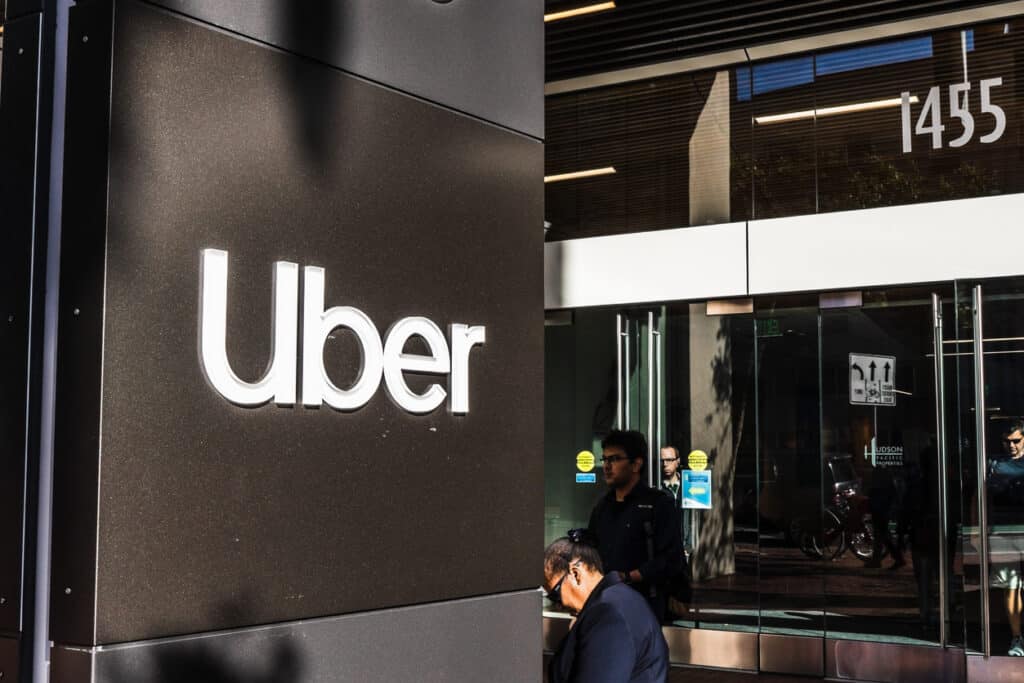On July 10, the International Consortium of Investigative Journalists (ICIJ) released the Uber Files, an investigation into thousands of documents revealing Uber’s business practices across the globe. Since the investigation was published, Mark MacGann has come forward as the whistleblower who provided the documents.
MacGann’s whistleblowing – and the subsequent investigation into the documents – pulled the curtain back on Uber’s dealings as it expanded across the globe from 2013 to 2017. The Uber Files contain a number of shocking revelations about the tech giant, including how it sought to exploit violence against its own drivers, lobby foreign leaders and Russian oligarchs, avoid police investigations, and skirt tax authorities.
By blowing the whistle to the news media, MacGann and other whistleblowers who make disclosures to the media are able to drive large public awareness about issues and increase scrutiny over companies. This form of whistleblowing can also succeed in spurring government action on issues. Questions remain, however, as to how different U.S. whistleblower programs handle disclosures made by whistleblowers to the media.
MacGann worked at Uber from 2014 to 2016 as the public face of the company’s efforts to expand into Europe. MacGann played an instrumental role in lobbying governments and the public to accept Uber’s expansion. MacGann leaked more than 124,000 documents to the news media.
“I regret being part of a group of people which massaged the facts to earn the trust of drivers, of consumers and of political elites,” MacGann told the Guardian. “I should have shown more common sense and pushed harder to stop the craziness. It is my duty to [now] speak up and help governments and parliamentarians right some fundamental wrongs. Morally, I had no choice in the matter.”
MacGann joins the ranks of other high-profile tech whistleblowers who have gone to the media in hopes of holding a major company accountable. In 2018, Christopher Wylie released documents to the Guardian to blow the whistle on how Cambridge Analytica nonconsensually collected data from millions of Facebook users for political advertising. In 2021, Facebook whistleblower Frances Haugen made headlines for her allegations about how the tech giant prioritized profits over public safety. Another Facebook whistleblower, Sophie Zhang, spoke to WNN in July of 2021 about how she tried to raise concerns at the company about inauthentic activity on the site and how governments around the world were using fake engagement and bot accounts to influence and mislead their citizens. Thomas le Bonniec, who worked for an Apple subcontractor in Ireland, gave an interview with WNN in August of 2021 and discussed how he was tasked with listening to user recordings from Siri, the company’s virtual assistant.
Whistleblower advocates have applauded MacGann’s disclosures and are calling upon the U.S. Securities and Exchange Commission (SEC) to recognize whistleblowers who go to the media as qualified whistleblowers under their whistleblower program. Through the SEC Whistleblower Program, qualified whistleblowers, individuals who voluntarily provide original information that leads to a successful enforcement action, are entitled to anti-retaliation protections and monetary awards. In February, the National Whistleblower Center (NWC) filed a petition with the SEC calling for clearly stated protections for whistleblowers who go to the media.
“Without Mark MacGann’s whistleblower the public would have remained in the dark about Uber’s reprehensible business practices – which seem to span across a jaw dropping range of business areas. Big Tech Whistleblowers like Mark, Frances, and Christopher deserve to be rewarded and celebrated because they are the key to holding the tech industry accountable,” NWC Executive Director Siri Nelson.
“Whistleblowers who go to the press must be fully protected. The Dodd-Frank Act specifically permits whistleblowers to provide their ‘original’ whistleblower information to the news media,” said Stephen M. Kohn, partner in the whistleblower law firm of Kohn, Kohn and Colapinto and Chairman of the Board at NWC. “But the SEC has not implemented regulations protecting these disclosures. We are working hard to close this gap, as whistleblowers, like the Uber whistleblower, serve the public interest and Congress intended that these whistleblowers be fully covered under the law.”
“Why should a whistleblower tip presented to the SEC in the form of a news report be treated differently from a report that used a lawyer as the intermediary?” writes whistleblower attorney Michael Kohn in a WNN op-ed on the importance of rewarding media whistleblowers. “More importantly, what public policy is furthered by penalizing whistleblowers who may trust the integrity of a news reporter and public pressure resulting from a public disclosure over the operations of a secretive government agency?”
Read:
The Uber whistleblower: I’m exposing a system that sold people a lie | Uber | The Guardian
The Importance of Rewarding Whistleblowers Who Go to the News Media
